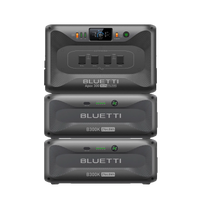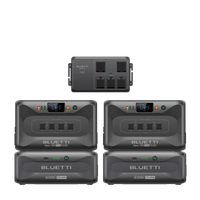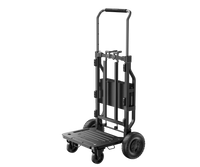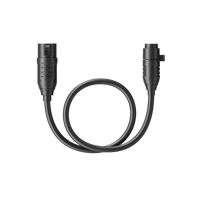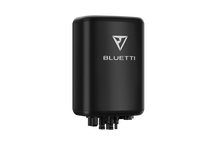Your cart is empty
Shop our products
Solar energy has become a popular source of renewable energy due to its availability and cost-effectiveness.
The agricultural sector is no exception, and the use of solar energy in farming and agriculture applications has increased significantly over the years.
Farmers and agricultural businesses are increasingly turning to solar energy to power irrigation systems, lighting, and other farming equipment, reducing their reliance on fossil fuels and grid electricity.
In this article, we'll explore the various ways in which solar energy is being used in agriculture and farming applications.
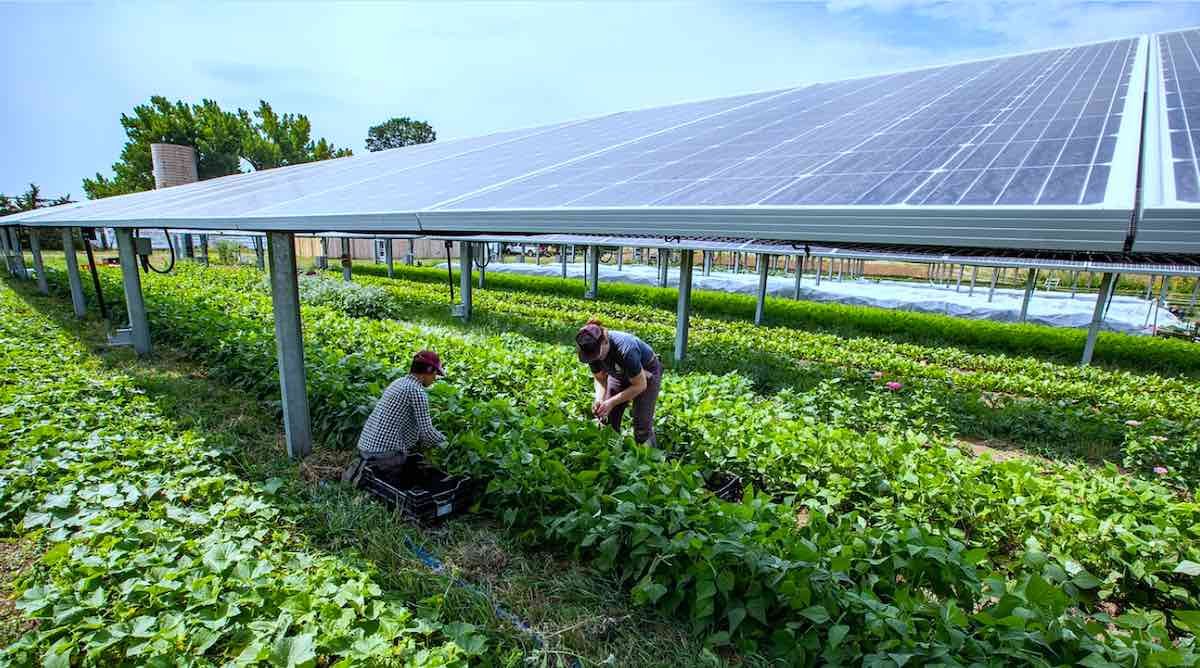
Irrigation Systems
Irrigation is one of the most important processes in farming, and it requires a considerable amount of energy to pump water from a well or a nearby water source to the crops.
Solar-powered irrigation systems use photovoltaic (PV) panels to convert sunlight into electricity, which powers the irrigation pumps. This reduces the cost of running the irrigation system, as the energy is generated for free from the sun.
Additionally, solar-powered irrigation systems can be installed in remote areas where grid electricity is not available, making it possible for farmers to grow crops in previously barren regions.
Lighting
Lighting is another essential component in farming, especially greenhouse farming. Plants need light to grow, and in areas with limited daylight, farmers use artificial light to supplement natural sunlight.
Solar-powered lighting systems are an excellent alternative to traditional grid-connected lighting systems.
PV panels generate electricity during the day, which is stored in batteries and used to power LED lights at night.
The use of solar-powered lighting systems not only reduces energy costs but also provides a reliable source of lighting in areas with intermittent grid power supply.
Crop Drying
Crop drying is a crucial process in farming, especially for crops like grains and cereals.
Traditional crop drying methods involve the use of fossil fuels like diesel, which is expensive and contributes to greenhouse gas emissions.
Solar-powered crop drying systems use PV panels to generate electricity, which powers fans that blow hot air through the crops to dry them.
Solar-powered crop drying systems are not only cost-effective but also environmentally friendly, making them an excellent alternative to traditional crop drying methods.
Poultry and Livestock Farming
Poultry and livestock farming requires a considerable amount of energy to run, especially in heating and cooling systems.
Solar-powered heating and cooling systems use PV panels to generate electricity, which powers fans that circulate air and maintain a comfortable temperature for the animals.
Solar-powered heating and cooling systems not only reduce energy costs but also provide a reliable source of energy in areas with intermittent grid power supply.
Electric Fencing
Electric fencing is an essential component in animal husbandry, especially in keeping predators away from livestock.
Traditional electric fencing systems use grid electricity or batteries to power the fence, which can be expensive and environmentally harmful.
Solar-powered electric fencing systems use PV panels to generate electricity, which powers the fence.
Solar-powered electric fencing systems are not only cost-effective but also environmentally friendly, making them an excellent alternative to traditional electric fencing systems.
Water Purification
Access to clean water is essential in farming, especially in areas with limited water sources.
Solar-powered water purification systems use PV panels to generate electricity, which powers pumps that draw water from a nearby source and filter it using a reverse osmosis system.
The purified water can then be used for irrigation, livestock, and other farming purposes.
Solar-powered water purification systems not only provide a reliable source of clean water but also reduce the cost of purchasing bottled water or installing traditional water purification systems.
Why Solar Is Beneficial To Your Agricultural Business
There are several advantages of using solar energy for farming and agriculture applications. Some of the significant benefits include:
Reduced Energy Costs: Farmers can reduce their energy costs by using solar energy to power their farming equipment, irrigation systems, and other electrical needs. Solar energy is a renewable and free source of energy, which means that once the solar system is installed, there are no additional fuel costs.
Reduced Reliance on Fossil Fuels: Solar energy helps reduce the reliance on fossil fuels. The use of solar energy in farming and agriculture applications can significantly reduce the carbon footprint of agriculture and help mitigate climate change.
Increased Energy Independence: Solar energy helps farmers become energy independent, as they are not reliant on the grid or fossil fuels for their energy needs. This is especially beneficial for farmers in remote areas where access to grid electricity is limited or non-existent.
Improved Crop Yield: Solar-powered irrigation systems ensure a consistent and reliable water supply, which can improve crop yield and quality. Additionally, solar-powered lighting systems can increase the number of daylight hours for crops, which can also improve crop yield and quality.
Reduced Environmental Impact: The use of solar energy in farming and agriculture applications reduces the environmental impact of agriculture. Solar-powered farming equipment, irrigation systems, and other electrical needs produce no greenhouse gas emissions or other harmful pollutants, making them environmentally friendly.
Long Lifespan: Solar panels have a long lifespan of up to 25 years or more, making them a cost-effective investment for farmers. Once installed, solar panels require minimal maintenance and can provide reliable energy for many years.
Diversification of Income: Farmers can generate additional income by selling excess solar energy back to the grid. This can help diversify the income streams of farmers and increase their overall financial stability.
Overall, the use of solar energy in farming and agriculture applications has numerous advantages.
Final Thoughts
In conclusion, the use of solar energy in agriculture and farming applications has numerous benefits. Solar-powered irrigation systems, lighting, crop drying, poultry and livestock farming, electric fencing, and water purification systems not only reduce energy costs but also provide a reliable source of energy in areas with intermittent grid power supply. Additionally, solar energy is environmentally friendly, making it an excellent
Shop products from this article
Be the First to Know
You May Also Like

What Does a 30% Federal Solar Tax Credit Mean and How to Apply?
Governments around the world are offering programs that encourage homeowners to switch to solar energy. Among the most notable programs is the 30% Federal Solar Tax Credit. It reduces your...

Deadly Flooding Devastates U.S. South and Midwest — What You Need to Know















